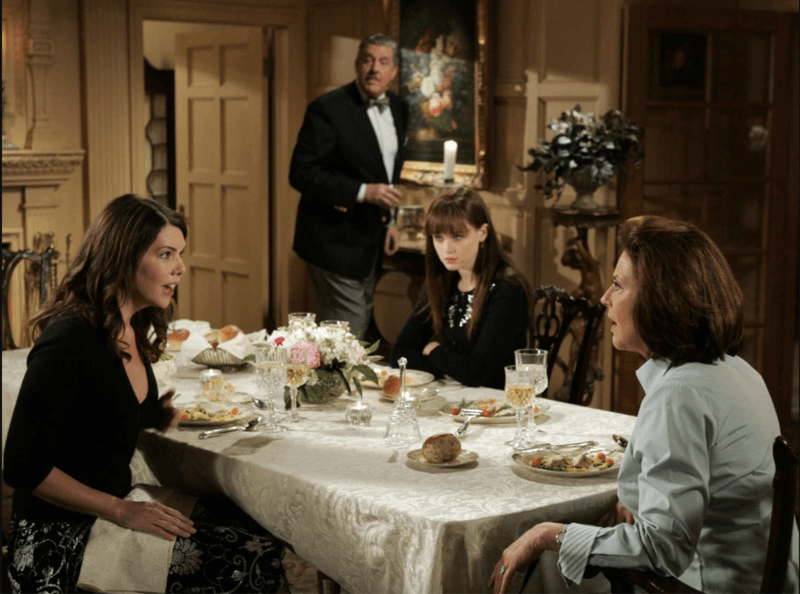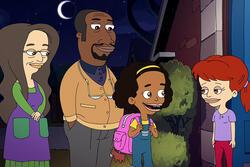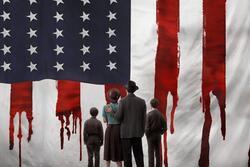We Need a Jewish Bechdel Test
During the past few months of quarantine, my mom has kept calm by bingeing Gilmore Girls. Sometimes, the two of us will watch the show together. Over the course of our viewing, we’ve realized that the Gilmore family is actually pretty Jewish-coded. Lorelai, an entrepreneurial single mother, will sometimes throw Yiddish expressions into her quips, and her family meets every week for special Shabbat-esque Friday night dinners. But despite all this coding—and the fact that series creator Amy Sherman-Palladino is Jewish (and also the creator of The Marvelous Mrs. Maisel, which is very Jewish)—the Gilmores have never explicitly been shown as such. Emily never threw a grand Purim masquerade ball at her house, and Rory never bothered any of her teachers at Yale about having to miss class on Yom Kippur.
But Gilmore Girls isn’t alone; too many TV shows and movies suggest that their fictional characters are Jewish without diving any deeper into that part of their identity. In Friends, siblings Monica and Ross are Jewish-coded, mostly due to their Ashkenazi last name Geller. The same could be said of Cher Horowitz in Clueless, or the Goldstein sisters in Fantastic Beasts and Where To Find Them. And even when these characters are Jewish, their Judaism is often played for goyishe laughs or trauma porn.
This can be the case even with Jewish writers on staff. Let’s examine the new Harley Quinn adult animated series, for instance. In the comics, Harley’s Jewish identity is well-established, and she’s in a happy relationship with a loving girlfriend (The same can be said of the Batwoman comics!). However, several instances in this cartoon (where two out of the three showrunners are Jewish) have been viewed as antisemitic stereotypes. Harley’s Jewishness is only brought up in the scene in which she’s talking to her overbearing mom, who’s the butt of the joke. And supervillain The Penguin, who isn’t Jewish in the comics, is established as such in the cartoon; his scrawny nephew’s bar mitzvah theme is money. When confronted on Reddit about instances like these, the showrunners replied that they either thought nothing of it or just saw it as ironic and self-deprecating. However, there’s nothing funny about the harm stereotypes cause. Irony can easily be twisted into sincerity depending on how the audience interprets a joke.
So how do we change all of this?
Over the past few decades, many “tests” have been created to measure how well a particular group is represented in the media. Arguably, the most well-known of these is the Bechdel-Wallace Test for women’s representation in film. According to Alison Bechdel and Liz Wallace, for a show or movie to pass the test, it must depict 1) at least two female characters, 2) who talk to each other, 3) about something other than a man. Similarly, there’s also the Kent Test for fictional representation of women of color, and the Disrep Test for disabled representation in fiction. I was inspired by all three of these tests to create a Jewish variant—something I feel is long overdue in the entertainment industry. Let me introduce the Finkle Test for Jewish representation in fiction, named for yours truly. In order to pass, a given film or series depicting a Jewish character must answer four questions affirmatively:
- Does the story explicitly show or mention that this character is Jewish?
- Is the Jewish character depicted in any scenes where they’re NOT discriminated against and/or suffering because of their Jewishness?
- Does the character exhibit traits beyond overt Jewish stereotypes (overly nerdy, wimpy, greedy, cheap, loud, overbearing, etc.)?
- If the Jewish character is also in one or more other marginalized groups (e.g.: they’re a person of color, gay, transgender, etc.), are those other parts of their identity similarly nuanced and not just trauma porn fodder?
If you answered NO to any of these questions, you need to rewrite your Jewish character.
As explained above, Gilmore Girls fails question one. There are countless “hints” of the family’s Judaism, but the show refuses to confirm or deny any of them. In order to pass question one, the show would’ve had to be more explicit. One character who (perhaps surprisingly) passes question one is Peter B. Parker of the 2018 animated film Spider-Man: Into The Spider-Verse. In a flashback scene, Peter is shown getting married in a Jewish ceremony and stepping on a glass. This scene explicitly shows Peter as a proud Jew, confirming decades of Spider-Man’s Jewish coding in the comics.
One famous fail of question two is Shakespeare’s The Merchant of Venice, which takes place in the Christian-dominant society of medieval Venice. The Jewish moneylender Shylock and his daughter Jessica only exist in the story to suffer, to be belittled for their religion, mocked, and have their family’s business ultimately reduced to nothing. They’re a source of pity for audiences, who bemoan their awful antisemitic surroundings. In order to pass question two, Shylock and Jessica needed to be portrayed as more than just poor misfortunate Jews for goyim to empathize with.
Failing question three depends on which applicable stereotypes a character has to avoid. For example, there are different stereotypes for Jewish men versus Jewish women (unfortunately, there’s a lack of any popular Jewish characters who identify as nonbinary or transgender). Jewish men, for instance, are often stereotyped as sickly, creepy, wishy-washy nerds. Think Andrew from Big Mouth or Mort from Family Guy. In order to pass question three, a Jewish male character would have to subvert these stereotypes. One male character that passes is Dave from Netflix’s The Umbrella Academy, who was confirmed Jewish in season two by a note on his military dog tags. (And, his last name is Katz!) Dave is Klaus Hargreeves’s love interest, and this buff soldier is far from being a shy and nebbish nerd. Klaus once describes Dave as “kind, strong, vulnerable, and beautiful.” Although not stated, Dave is portrayed as brave, both for surviving the horrors of combat and for coming out as gay and finding true love in the middle of the Vietnam War.
This brings us to question four, which is all about intersectionality (a term created by American lawyer and scholar of critical race theory Kimberlé Crenshaw). Jews aren’t a monolith; there are Jewish people of all races, ethnicities, sexualities, and abilities. In order to pass this question, every part of a Jewish character’s identity must be respected onscreen… which includes not including any type of trauma porn based on any of their other identities. Unfortunately, Dave Katz’s arc in season two of The Umbrella Academy is not free of trauma. It’s revealed that he did not come out as gay until he met Klaus in the war, because back home he was raised in a very homophobic family. Several scenes in the show explicitly explore the pressure and shame he experienced.
The point of a “Jewish Bechdel Test” like my Finkle Test is to encourage creators—Jewish or not—to be more nuanced in their depictions of Jewish characters. I want my test to help creators craft well-rounded characters who are both proud of their identities and are the proud heroes of their own stories. Whether the character hails from New York City, journeys to war-torn Vietnam, or grows up in Stars Hollow, the stories of Jewish characters should be crafted with thoughtfulness.








Very thoughtful and timely piece. I like the idea of the Finkle Test; it's long past time we got some more nuance in Jewish portrayals on TV and in the movies. I especially want to see more Jewish women portrayed as fully rounded people, not the stereotypes we often get: cold and intellectual, or desperate to get married to the nearest doctor or rabbi at hand, or poorly socialized and unattractive. This stuff drives me crazy and I'd LOVE to see it addressed.
Transparent has a few examples of Jewish characters that identify as transgender or non-binary. I would be really interested to hear your takes on how they hold up to the Finkle test.
Don't you feel that Mrs. Maisel would fail question 3? I feel that show is nothing short of a parody of Jews which is especially annoying since most of the main characters aren't Jewish. I realize I'm in the minority on this one, but I just can't watch that show.
Very admirable and well thought out. I think the Finkle Test is very helpful for creatives and could help make the pathway less murky. Well done.